#Rwanda Resilience
Explore tagged Tumblr posts
Text
As we are inundated daily on social media with receipts of savagery perpetrated against Palestinian people, let us also amplify the voices of the unheard persecuted people of the #Sudan #DRC #Congo #Rwanda. Listen now to @poet_ktwo in his own words. Power to the people. #weoutchea #gullah #geechee refugees_easthorn @refugees
#Sudan#DRC#Congo#Rwanda#Stand With Sudan#DRC Struggles#Congo Crisis#Rwanda Resilience#Listen To Survivors#Human Rights Heroes#Global Solidarity#Refugees East Horn\
606 notes
·
View notes
Text
Why You Should Visit Rwanda: Experience the Beauty of Kigali and Stay at Kadoo Travels Apartments

Rwanda, often referred to as the "Land of a Thousand Hills," is one of Africa’s most enchanting destinations. Known for its breathtaking landscapes, diverse wildlife, and rich cultural heritage, Rwanda offers a unique travel experience that promises to captivate every visitor. Whether you’re planning a short getaway or a longer adventure, there’s no shortage of things to see and do in this incredible country.
For your stay in Kigali, the capital city, Kadoo Travels Apartments stands out as the ideal accommodation choice. Combining luxury, comfort, and affordability, Kadoo Travels offers everything you need for a memorable visit. In this blog, we’ll highlight why you should visit Rwanda and why Kadoo Travels Apartments is the perfect place to stay while exploring this beautiful country.
Why You Should Visit Rwanda
Rwanda is a destination that offers something for everyone, from nature lovers to history buffs, adventure seekers, and culture enthusiasts. Here are the top reasons why Rwanda should be at the top of your travel list:
Unparalleled Natural Beauty
Rwanda is famous for its stunning landscapes. The country’s lush hills, serene lakes, and sprawling savannas provide a picturesque backdrop for any traveler. Whether you’re hiking to the top of Mount Kigali for panoramic views, exploring Volcanoes National Park to witness the mountain gorillas, or walking around Lake Kivu, Rwanda offers spectacular scenery at every turn.
Gorilla Trekking Experience
One of Rwanda's most famous attractions is the opportunity to go gorilla trekking in Volcanoes National Park. As one of the few places in the world where you can see these magnificent creatures in their natural habitat, Rwanda provides an unforgettable wildlife experience. Trekking through the misty jungle and coming face-to-face with the endangered mountain gorillas is a once-in-a-lifetime adventure.
Rich Cultural and Historical Significance
Rwanda’s history is both tragic and inspiring, and a visit to the Kigali Genocide Memorial offers a sobering look into the country's past. The museum is a powerful reminder of the resilience and strength of the Rwandan people. Beyond the memorial, Rwanda's vibrant culture is showcased through local art, music, dance, and cuisine.
Sustainable Tourism and Conservation Efforts
Rwanda is committed to sustainable tourism and wildlife conservation. The country’s eco-tourism initiatives make it a model for responsible travel. Rwanda is home to numerous national parks, wildlife reserves, and conservation projects that attract nature lovers and eco-tourists from around the world.
Where to Stay in Kigali: Kadoo Travels Apartments
After exploring the beauty of Rwanda, you’ll need a comfortable and convenient place to rest. That’s where Kadoo Travels Apartments comes in. Located in the heart of Kigali, these apartments offer the perfect blend of comfort, luxury, and affordability. Here’s why Kadoo Travels Apartments should be your accommodation choice:

Prime Location in Kigali
Kigali is a dynamic and vibrant city with plenty to explore, and Kadoo Travels Apartments is centrally located, making it easy to access key attractions, restaurants, shopping areas, and business centers. Whether you're in town for leisure or business, the apartments are ideally situated to allow you to explore Kigali at your own pace.
Spacious and Comfortable Apartments
When you stay at Kadoo Travels Apartments, you’ll enjoy spacious, fully furnished units that make you feel right at home. The apartments feature modern amenities, including comfortable beds, high-speed Wi-Fi, fully equipped kitchens, and cozy living areas. Whether you’re traveling solo, as a couple, or with family, these apartments provide the ideal setting for a relaxing and enjoyable stay.
Affordable Luxury
Kadoo Travels Apartments offer the perfect balance between luxury and affordability. You can enjoy the comfort of a high-end apartment without breaking the bank. With competitive rates, you get all the benefits of staying in a luxurious property while staying within your budget. For travelers looking for value without compromising on quality, Kadoo Travels Apartments is the best option.
Family-Friendly Accommodation
Traveling with children? Kadoo Travels Apartments is a family-friendly accommodation that ensures a safe and comfortable stay for all members of the family. The spacious apartments are ideal for families, offering plenty of room for relaxation, dining, and playing. Plus, the fully equipped kitchens give families the option to prepare their own meals, making it a convenient and budget-friendly choice.
Excellent Amenities for a Stress-Free Stay
At Kadoo Travels Apartments, you’ll have access to a range of excellent amenities, including 24/7 security, housekeeping services, airport transfers, and more. The apartments are designed with your convenience in mind, offering everything you need to enjoy a stress-free and comfortable stay.
Things to Do in Kigali and Beyond
Rwanda is a country that offers diverse experiences, from exploring Kigali’s vibrant city life to venturing into its national parks. Here are some top activities you should consider during your visit:
Visit the Kigali Genocide Memorial
A visit to the Kigali Genocide Memorial is an important part of understanding Rwanda’s history. The memorial provides an emotional and educational experience, allowing you to learn about the tragic events of the 1994 genocide and Rwanda's journey towards healing.
Explore Nyamirambo
For a more local and cultural experience, head to the Nyamirambo neighborhood in Kigali. Known for its vibrant atmosphere, street food, and bustling markets, Nyamirambo is a great place to immerse yourself in Rwandan culture. It’s just a short distance from Kadoo Travels Apartments, making it a perfect spot for an afternoon exploration.
Take a Day Trip to Volcanoes National Park
If you're looking for adventure, head to Volcanoes National Park for a once-in-a-lifetime gorilla trekking experience. The park is home to endangered mountain gorillas, and with guided treks, you’ll have the opportunity to get up close and personal with these incredible animals.
Relax by Lake Kivu
For a more laid-back experience, visit Lake Kivu, one of Africa's great lakes. Located just a few hours from Kigali, the lake offers stunning views and opportunities for swimming, boat rides, and relaxation by the shore.
Kigali’s Nightlife and Dining
Kigali is also home to a growing nightlife scene, with a variety of bars, restaurants, and nightclubs. Enjoy delicious Rwandan cuisine at local eateries, or opt for international dishes at upscale restaurants. Staying at Kadoo Travels Apartments ensures you’re just a short distance from the city’s best dining and entertainment options.
Rwanda is a truly remarkable destination, offering a mix of natural beauty, cultural richness, and unforgettable experiences. Whether you’re planning to go gorilla trekking, explore Kigali, or simply relax by Lake Kivu, Rwanda has something for every type of traveler. And when it comes to where to stay in Kigali, Kadoo Travels Apartments is the best option for a comfortable, affordable, and luxurious experience. With its prime location, excellent amenities, and family-friendly environment, Kadoo Travels Apartments ensures a memorable stay in Rwanda’s vibrant capital city.
2 notes
·
View notes
Text
Why We Must Remember?
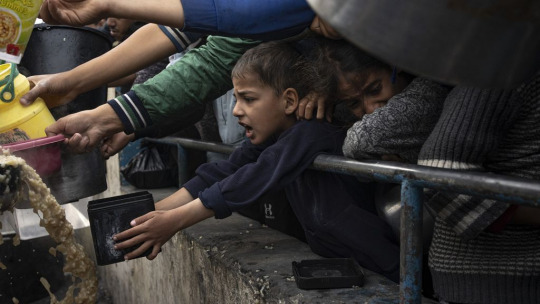
"It is not enough to fight for the living; we must also remember the dead and honor their sacrifices."
In a camp a small, frail 8-year-old child sitting scratching at his body, "There's no clean water to bathe with. I'm itching all the time," says Ahmad with frustration and sadness. Other children shun him because of his rash. Ahmad's mother, Fatima, sits by helplessly, saying, "He got a fever. The itching is constant, and he cannot sleep. The water is not clean, and we don't have the basics such as shampoo and soap."Nearby, 7-year-old Wahid sits in pain, pointing to a spreading rash. His mother adds, "Even walking is painful for him."These stories, which have been sourced from the UNICEF Palestine page, represent a fraction of the suffering of thousands of children caught in war zones like Gaza. They are exposed to diseases and indignities that no child should be subjected to due to a lack of clean water, sanitation, and medical care. As we discuss their struggles, similar stories unfold worldwide because people decide to keep silent.This is no isolated tale it reflects systemic failures in international policy and governance. The plight of children like Ahmad and Wahid shows how war spares no one, least of all the innocent, further underlining the need for the urgency of these problems.

"Amidst the shattered ruins, a child's innocence clings to hope, her eyes searching for a world that feels safe again. Her tiny presence speaks volumes of resilience in a space consumed by despair."
War has always cut human history, but rules of war have evolved in time. Ancient texts, such as the Mahabharata, talked about the destructive nature of war and provided ethical guidelines for how to conduct it: that it should be done in specified areas during daylight and not on civilians. Similarly, the Quran stresses the value of life, which includes strict prohibitions against causing harm to non-combatants or destroying resources.
In Christian theology, Augustine and Aquinas developed the concept of "just war," which insists that wars should have just causes and the purpose of restoring peace.In fact, history demonstrates the many occasions when they are violated. Modern war, from World War to present-day warfare, makes civilians into "collateral damage." Industrialization and technology have made war a force of impersonal, indiscriminate destruction. As Napoleon Bonaparte wrote, "The world suffers a lot from the violence of bad people because of the silence of good people." His words remind us of the moral vacuum that ensues when ethical lines are broken by ambition and hatred.
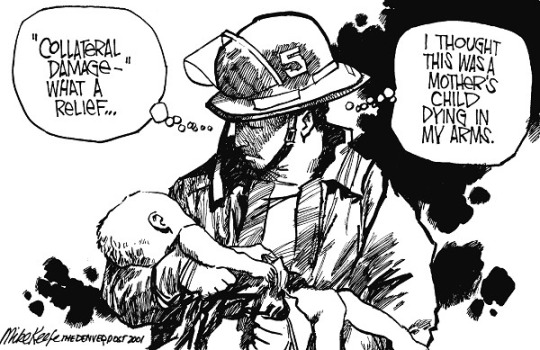
"A rescuer holds a lifeless child, haunted by the weight of innocent lives lost. Behind the term "collateral damage" lies unbearable human grief and pain."
Genocide represents one of war’s darkest consequences. Coined by Raphael Lemkin, the term combines "geno" (race) and "cide" (to kill). Lemkin’s advocacy, driven by the Holocaust’s horrors, led to its recognition as a crime under international law. Yet, genocide remains a tragic reality. From the Armenian Genocide to Rwanda, Cambodia, and Myanmar’s persecution of the Rohingya, these atrocities seek to annihilate entire communities, erasing lives, cultures, and histories. The United Nations (UN) and international laws established, such as the Geneva Conventions, are all designed to prevent war crimes and to protect civilians. Yet, their implementation often fails. For instance, it was during the genocide in Rwanda and Bosnia that UN failures in peacekeeping and accountability were institutional.
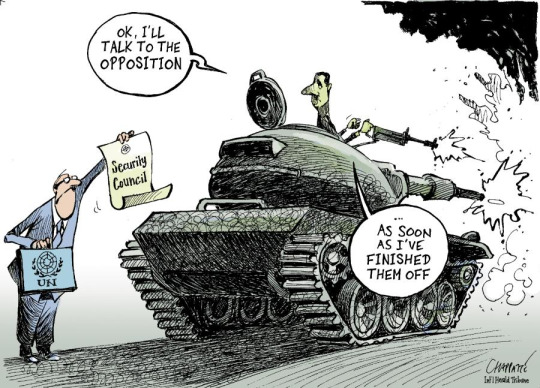
"The cartoon highlights the grim irony of war, where peace is postponed until the destruction is complete."
Edward Said and similar scholars attack colonial legacies that allow divisions and conflicts to continue. Said further explains in Orientalism how the colonial powers ensured that "us versus them" narratives allowed cycles of violence to be sustained long after the departs. Such divisions are prevalent in the Middle East and Africa, showing how history shapes the problem today.The plight of Gaza's children is a repeated failure. International bodies must prioritize availability of clean water, medical care, and education in those conflict zones. Otherwise, as Napoleon warned, "the silence of good men allows evil to triumph".
War's impact transcends generations, leaving physical, emotional, and cultural scars. The trauma experienced by children like Ahmad and Wahid reflects the broader consequences of conflict. Remembering these stories is not just a moral duty; it is a necessity for shaping a better future.As Napoleon Bonaparte reminds us, "Inaction breeds danger. Men who are responsible for good, responsible men, will stagnate in time, especially if they think themselves safe." The Rwandan Genocide killed nearly a million people in 100 days.
This is what happens when the world keeps silent. The same can be said about the Holocaust: horrors led to the Universal Declaration of Human Rights and "never again."Yet, as the wars in Syria, Myanmar, and elsewhere continue, we see history repeating itself. Studying war, trauma, and genocide allows us to confront these patterns. It teaches us about resilience and survival, as seen in children like Ahmad and Wahid, whose stories symbolize both suffering and hope.
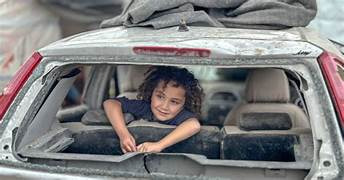
"Amidst the ruins of a shattered car, the child's gentle smile reflects resilience hope persisting even in the face of devastation."
In this blog series, we will focus on ancient, medieval, and modern periods of history to give closer attention to these themes. The first part will uncover some early origins of war and their ethical dilemmas along with the very first genocides in ancient civilizations. In the second part, we will assess how religion and power played central roles in medieval conflicts including religious wars and persecution of whole communities. Finally, the third section will take us into the present world by discussing the latest genocides, war crimes, and how technology is impacting contemporary warfare.
We trace here how the colonial powers carried on their "us and them" narratives and enshrined divisions even well after the colonialism phase was over, fuelling conflict. We will also see how these legacies of division continue to influence the conflicts we are seeing today-from the Middle East to Africa, where wars, genocides, and war crimes continue to rip apart communities and families. Case studies from India, Syria, Rwanda, and Sri Lanka among others will enable us to understand better how human beings, divided by historical forces, continue to divide themselves, perpetuating cycles of violence and trauma.
Within our blog series Faces of Conflict, we strive to shed light on the many layers of the reality of war and its consequences. Inspired by the Roman virtue of Veritas, where truth is the underlining point, our investigation finds and searches for the more sinister and harsh realities that arise within conflict, mainly with deep effects on the vulnerable victim, especially women and children. By sharing these stories and perspectives, we challenge silence and complicity, allowing injustice to flourish, as well as throw a light on how war crimes have evolved and caused havoc over time.
Through this journey, we move past recounting atrocities to identify tangible solutions that can deliver true justice restoring dignity, healing trauma, and promoting peace. It's through tracing historical patterns and analyzing modern implications we are seeking to find failures in the system and motivate accountability and reform. Recognizing the legacy of war crimes is not only key to honoring the past but for creating a future free of cycles of violence and injustice.
Frankel, J. (2024, December 6). War - Conflict, Causes, Consequences. Britannica. Retrieved December 10, 2024, from https://www.britannica.com/topic/war/Social-theoriesHow do you define genocide?
(2022, April 4). BBC. Retrieved December 10, 2024, from https://www.bbc.com/news/world-11108059
UNICEF State of Palestine. (n.d.). Unicef. Retrieved December 10, 2024, from https://www.unicef.org/sop/
2 notes
·
View notes
Text
Meghan, The Duchess of Sussex is a feminist, champion of human rights and gender equity, and global role model. Her lifelong advocacy for women and girls remains a constant thread she weaves through both humanitarian and business ventures. She is noted as one of the most powerful and influential women in the world, topping lists such as TIME Magazine’s Most Influential People, The Financial Times’ 25 Most Influential Women, Variety Power of Women, and British Vogue’s Vogue 25. She and her husband, Prince Harry have also been the recipients of the NAACP President’s Award as well as the Robert F. Kennedy Ripple of Hope Award. Meghan’s global impact, and strong stance on resilience, equality, and compassion through action, have made her one of the most iconic public figures of this generation.
Born and raised in Southern California, Meghan attended Los Angeles based all-girls Catholic School, Immaculate Heart, which she continues to support as an alumna, before moving to Chicago to attend the prestigious Northwestern University. While there, she double majored in Theater and International Relations, and went on to intern at the US Embassy in Buenos Aires, Argentina, as well as to study abroad in Madrid, Spain. After graduation, Meghan turned her focus to the entertainment industry, landing her big break as a lead actor on the hit series, ‘Suits’ which she starred in for seven seasons. During her time off between filming, Meghan travelled to Rwanda, India, and across the globe working on humanitarian missions, and serving in key roles such as: UN Women’s Advocate for Women’s Political Participation and Leadership, a World Vision Global Ambassador, and a leading Counsellor to One Young World, where she inspired youth and women around the world through her passionate advocacy and hands-on approach to being of service. She also travelled to support the military community on a USO Tour, visiting six military bases in seven days including Bagram, Afghanistan. In 2018, Meghan married Prince Harry, becoming The Duchess of Sussex.
An accomplished writer, she has contributed pieces to publications in the UK, US, and Ireland, and parlayed that skill into the creation of the successful lifestyle website, ‘The Tig’, where her thoughtful and inspiring op-eds cultivated a global fanbase. The Duchess of Sussex was the first guest editor in the history of British Vogue for their July Issue in 2019, which was the fastest selling copy in the history of the publication. She and Prince Harry founded The Archewell Foundation in 2020 to support communities in need at a micro and macro level, in both moments of crisis as well as for long term aid. At The Archewell Foundation, they hold the value that charitable work should not simply be ‘a handout, but rather a hand held’, a phrase which Meghan first coined when supporting UK charity Smart Works, of which she is patron, that uplifts and prepares underserved women to enter the workforce. Meghan and her husband also founded and oversee production company, Archewell Productions and podcasting arm, Archewell Audio. In 2022, Meghan launched ‘Archetypes’, a record-breaking podcast exploring the labels that try to hold women back; ‘Archetypes’ debuted at Number 1 in The US, UK, Australia, Ireland, and New Zealand, and topped the charts as the Number 1 podcast in 47 countries, demonstrating her unparalleled global reach. After its first season, Archetypes was awarded was awarded The People’s Choice Award in the podcast category.
She is a NY Times Best Selling author, publishing her highly celebrated children’s book, ‘The Bench’, and “Together: Our Community Kitchen” a publication she spearheaded with the women of the Hubb Community Kitchen in the UK, who were displaced after the tragic Grenfell Fire. True to her character, The Duchess of Sussex mobilized to turn pain into purpose, working alongside this dynamic group of women to help them heal, grow, and develop their own business enterprises in the face of adversity. In addition to topping the NY Times Bestsellers list, “Together,” also debuted as number one on the UK’s Sunday Booklist, with proceeds going to the Kitchen. Meghan’s influence in fashion has been coined “The Meghan Effect” with items selling out within hours of her wearing them. Her ‘effect’ has transcended fashion, shifting cultural conversations as seen with her op-ed for the NY Times “The Losses We Share.” The piece detailed a heartbreaking personal loss which spiked the conversation surrounding miscarriage to the highest it had been spoken of in over two decades at the time of publishing.
Meghan is a passionate advocate for mental health and family care, the holistic support of women and children’s rights, and the immeasurable value of one’s self worth. Her core belief that representation matters, and her connection to community through the lens of learning, healing, and inspiring have helped define her as a cultural catalyst for positive change. Meghan resides in California with her husband and their children Prince Archie Harrison and Princess Lilibet Diana, and their three dogs.
34 notes
·
View notes
Text
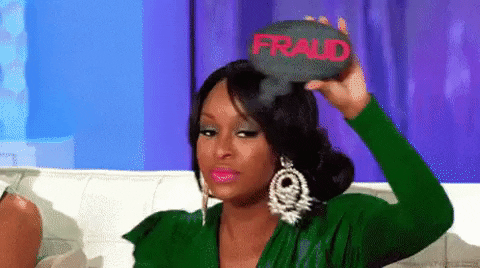
"Don't hate the player, hate the game." Maybe we should hate both. There's padding a resume but then there's a work of fiction which is what Meghan Markle is determined to pass off as her professional bio. Grab your sick bucket🤢 before examining more proof that this vile woman can't tell THE TRUTH even if her life depends on it. There simply aren't enough pinocchios in the world to highlight these lies.
🤥"Accomplished writer"
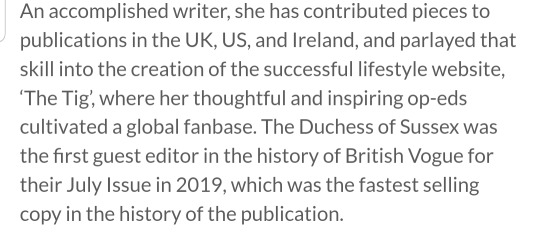
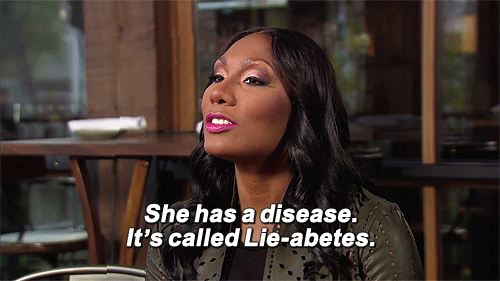
🤥Fashion "The Meghan Effect causes items to sell out." (She had the nerve to include the op-ed she purchased for the mythcarriage) "spiked conversation surrounding miscarriage to the 🤥highest it had been spoken of in over two decades at the time of publishing🤦♀️🤦♂️."
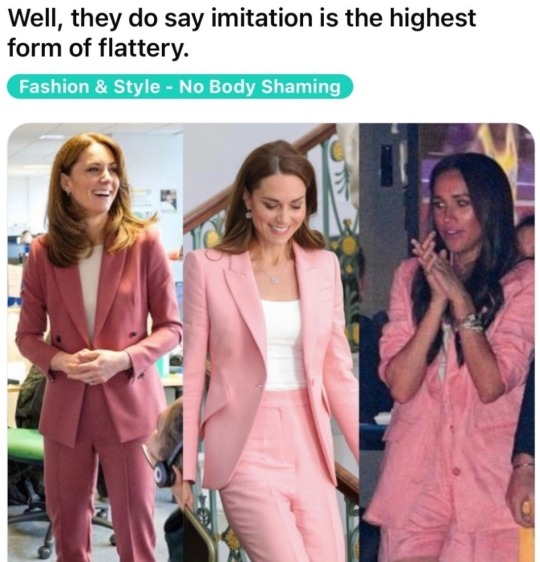

🤥Highly celebrated children's book
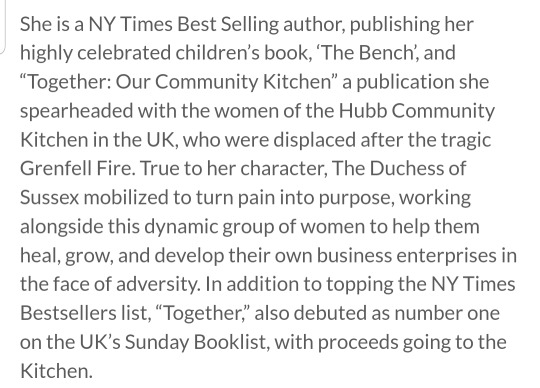

Meghan, The Duchess of Sussex, Keynote Speaker | Harry Walker Agency
Meghan, The Duchess of Sussex is a 🤥feminist🤥, champion of 🤥human rights and gender equity, and global🤥 role model. Her lifelong🤥 advocacy for women and girls remains a constant thread she weaves through both humanitarian 🤥and business ventures. She is noted as one of the most 🤥powerful and influential women in the world, topping lists such as TIME Magazine’s Most Influential People, The Financial Times’ 25 Most Influential Women, Variety Power of Women, and British Vogue’s Vogue 25🤥.
This is just gross. A global role model🤢 one of the most iconic figures of this generation 🤢🤢🤢
She and her husband, Prince Harry have also been the recipients of the NAACP President’s Award as well as the Robert F. Kennedy Ripple of Hope Award. Meghan’s global impact🤥, and strong stance on resilience, equality, and compassion🤥 through action, have made her one of the most iconic 🤥public figures of this generation.

Born and raised in Southern California, Meghan attended Los Angeles based all-girls Catholic School, Immaculate Heart, which she continues to support as an alumna, 🤥before moving to Chicago to attend the 🤥prestigious Northwestern University. While there, she 🤥double majored in Theater and International Relations, and went on to 🤥intern at the US Embassy in Buenos Aires, Argentina, as well as to study abroad in Madrid, Spain. After graduation, Meghan turned her focus to the entertainment industry, landing her big break as a 🤥lead actor on the hit series, ‘Suits’ which she starred in for seven seasons. During her time off🤥 between filming, Meghan travelled to Rwanda, India, and across the globe 🤥working on humanitarian missions, and serving in 🤥key roles such as: UN Women’s Advocate for Women’s Political Participation and Leadership, a World Vision Global Ambassador, and a leading Counsellor to One Young World, where she inspired 🤥youth and women around the world through her passionate advocacy and 🤥hands-on approach to being of service. She also travelled to support the military community on a USO Tour, visiting six military bases in seven days including Bagram, Afghanistan.
In 2018, Meghan married Prince Harry, becoming The Duchess of Sussex.
🤥An accomplished writer, she has contributed pieces to publications (tabloids🙄) in the UK, US, and Ireland, and parlayed that skill into the creation of the successful lifestyle website, ‘The Tig’, where her thoughtful and🤥 inspiring op-eds cultivated a😂 global fanbase. The Duchess of Sussex was the first guest editor in the history of British Vogue for their July Issue in 2019, which was the fastest selling copy in the history of the publication.
She and Prince Harry founded The Archewell Foundation in 2020 to support communities in need at a micro and macro level, in both moments of crisis as well as for long term aid. At The Archewell Foundation, they hold the value that charitable work should not simply be ‘a handout, but rather a hand held’, 🤥a phrase which Meghan first coined when supporting UK charity Smart Works, of which she is patron, that uplifts and prepares underserved women to enter the workforce. Meghan and her husband also founded and oversee production company, Archewell Productions and podcasting arm, Archewell Audio.
In 2022, Meghan launched ‘Archetypes’, 🤥a record-breaking podcast exploring the labels that try to hold women back; ‘Archetypes’ debuted at Number 1 in The US, UK, Australia, Ireland, and New Zealand, and topped the charts as the Number 1 podcast in 47 countries, demonstrating her 😂🤥unparalleled global reach. After its first season, Archetypes was awarded The People’s Choice Award in the podcast category😂.
She is a 🤥NY Times Best Selling author, publishing her highly celebrated children’s book, ‘The Bench’, and “Together: Our Community Kitchen” a publication she spearheaded with the women of the Hubb Community Kitchen in the UK, who were displaced after the tragic Grenfell Fire. True to her character, The Duchess of Sussex mobilized to turn pain into purpose🤢, working alongside🤥 this dynamic group of women to help them heal, grow, and develop their own business enterprises in the face of adversity. In addition to 🤥topping the NY Times Bestsellers list, “Together,” also debuted as number one on the UK’s Sunday Booklist, with proceeds going to the Kitchen.
Meghan’s influence in fashion has been coined🤥 “The Meghan Effect” with items selling out within hours of her wearing them. 🤥Her ‘effect’ has transcended fashion, 🤥shifting cultural conversations as seen with her op-ed for the NY Times “The Losses We Share.🤥🤥🤥🤥🤥” The piece detailed a heartbreaking personal loss 🤥🤥🤥🤥🤥which spiked the conversation surrounding miscarriage to 🤥the highest it had been spoken of in over two decades at the time of publishing🤥🤥🤥🤥🤥.
Meghan is a 🤥passionate advocate for mental health 🤥🤥🤥🤥🤥and family care🤥🤥🤥🤥, the holistic support of women and children’s rights🤥, and the immeasurable value of one’s self worth🤥. Her core belief that representation matters🤪, and her connection to community through the lens of learning🤥, healing🤥, and inspiring🤥 have helped define her as a 🤥cultural catalyst for 🤥positive change.
Look at how dumb the kids names look with titles🤡🤦♂️🤦♀️ They sound like cartoon characters.
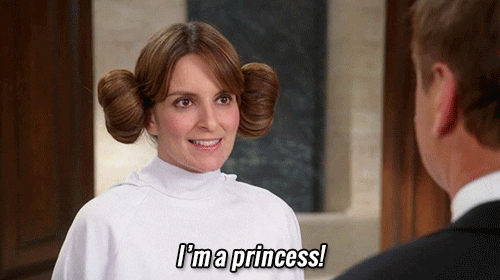
Meghan resides in California with her husband and their children Prince Archie Harrison and Princess Lilibet Diana, and their three dogs.
Someone told her this is her "Beyonce" photo. Most likely it was Thirsty Tyler Perry 😂🤦♀️🤦♂️

#megxit#strip the titles#meghan markle is a liar#revenge#fraudess#fraudsters#i was such a fraud#walmart wallis#disgusting#bio#harry walker agency#wne#snapper pal#she wrote it#PR#speaker for hire#one young world
33 notes
·
View notes
Text
"Dreams Amidst the Ashes: A Cry for Peace and Hope"
Every day, my wife and I sit together, often in silence at first, then in discussion, searching for answers to the same troubling question: how can we help our children make up for not just last year’s lost education, but also this year’s as well? It’s a burden we feel deeply, knowing their future is slipping through our fingers like grains of sand. They’ve been robbed of their normalcy, forced to grow up in a world shadowed by conflict and uncertainty.
I don’t blame them for retreating into their imaginations, where fairy tales and fantastical worlds offer an escape from the grim reality around them. In fact, I support them wholeheartedly. Let them dream of magical places, far away from the sounds of bombs and the despair of displacement. Let them live in the world of stories, where they can be anything—brave knights, soaring dragons, or fearless adventurers—free from the weight of the war that continues to shape their childhood.
But time is ticking. Each day we lose to the chaos of war is a day we can never get back. It feels as though their lives are being placed in a suspended animation, much like the mythical genie who spent thousands of years locked away in a lantern, longing for freedom. Our children, too, are waiting—for the chance to reclaim their future, for the return of peace, for the moment when they can just be kids again.
We look to history, wondering where the leaders of today are, the ones who will stand up and say, "Enough." I think back to the 1990s, when Bosnia was ravaged by war—when entire families were torn apart, and villages were wiped from the map. The world watched in horror as genocide unfolded, yet from the ashes of that tragedy came hope. In 1995, U.S. President Bill Clinton helped broker the Dayton Agreement, which put an end to the Bosnian War, bringing peace to a land that had been soaked in blood. It wasn’t perfect, and it didn’t undo the horrors that had been committed, but it gave people a chance to rebuild. It offered them a path forward, a light at the end of a dark tunnel.

Where is that leader now? Where is the person who will rise up to bring an end to the violence we endure today? The war criminals who orchestrate this suffering are well-known, their crimes are not hidden. And while justice feels distant, I hold on to the hope that, one day, each and every one of them will face the reckoning they deserve. History has shown us that those who commit atrocities cannot run forever. From Nuremberg to The Hague, from Rwanda to Bosnia, justice, though slow, is relentless.
As we wait, we hold on to hope. We teach our children about the resilience of the human spirit, about the moments in history when, even in the face of unimaginable darkness, there were those who stood for justice, for peace, for the right to live without fear. We teach them that, though they may feel trapped now, their story is not over. Like the genie in the lantern, their freedom will come.
Until then, we remain vigilant, praying for a leader, for a voice that will do for us what was done for the people of Bosnia—someone who will bring peace to a broken land, and allow our children, and all children, to once again dream of a future filled with hope, not war.
#free palestine#gaza#gaza genocide#gazaunderattack#free gaza#gaza strip#@90-ghost#ryan reynolds#el-shab-hussein#trending
6 notes
·
View notes
Text
RWANDA EMERGENT OF A GREEN ENVIRONMENT
Rwanda has stood out to be one of the world's most green economy/ society. The country governed by President Paul Kagame continues to advance environmental protection. Some of the country’s green movements that are reducing eco anxiety include;
Every month in Kigali Rwanda🇷🇼, there is a car-free day which promotes physical activity and environmental awareness, employing the social environment to prioritize health while reducing pollution and congestion on the streets.
Considering these challenges posed by climate change, the Rwandan government prioritized a model of economic development that is low-carbon and climate-resilient balancing environmental sustainability with economic growth thereby achieving poverty reduction and social inclusion in its development vision and strategies.
Rwanda’s policy framework for the building and construction sector underscores the benefits of green/ sustainable buildings. The country has since leveraged the development of green buildings in order to promote environmental protection. In the context of Rwanda, green buildings are buildings that promote energy efficiency, water efficiency, promotes indoor environmental quality and makes use of the country's water efficiency and countries industrial productivity.
Looking ahead this year, 2024, Rwanda’s solar energy roadmap envisions a substantial increase in installed solar capacity. The country aims to generate a significant percentage of its total electricity from solar sources, further reducing its carbon footprint. The widespread adoption of solar energy is expected to drive economic growth, create jobs, and enhance energy resilience.
Rwanda has enforced the ban importing plastic bags and second hand clothes in order to reduce pollution. The ban on Second hand clothes is also aimed at promoting the country's textile industry and boosting the economic environment at large.

#rwanda#paul kagame#go green#green#global economy#environmentalism#green energy#magazine#africa#panafrican#my writing#afrofuturism#african politics#artists on tumblr#african writers#fashion#writers#environmental justice#green economy#climate anxiety#climate action#climate change#climate crisis#climate emergency#climate catastrophe#global warming#ozone hole#ozone layer#ozone#environmentallyfriendly
5 notes
·
View notes
Text
If you ever had pastries at breakfast, drank soy milk, used soaps at home, or built yourself a nice flat-pack piece of furniture, you may have contributed to deforestation and climate change.
Every item has a price—but the cost isn’t felt only in our pockets. Hidden in that price is a complex chain of production, encompassing economic, social, and environmental relations that sustain livelihoods and, unfortunately, contribute to habitat destruction, deforestation, and the warming of our planet.
Approximately 4 billion hectares of forest around the world act as a carbon sink which, over the past two decades, has annually absorbed a net 7.6 billion metric tons of CO2. That’s the equivalent of 1.5 times the annual emissions of the US.
Conversely, a cleared forest becomes a carbon source. Many factors lead to forest clearing, but the root cause is economic. Farmers cut down the forest to expand their farms, support cattle grazing, harvest timber, mine minerals, and build infrastructure such as roads. Until that economic pressure goes away, the clearing may continue.
In 2024, however, we are going to see a big boost to global efforts to fight deforestation. New EU legislation will make it illegal to sell or export a range of commodities if they have been produced on deforested land. Sellers will need to identify exactly where their product originates, down to the geolocation of the plot. Penalties are harsh, including bans and fines of up to 4 percent of the offender's annual EU-wide turnover. As such, industry pushback has been strong, claiming that the costs are too high or the requirements are too onerous. Like many global frameworks, this initiative is being led by the EU, with other countries sure to follow, as the so-called Brussels Effect pressures ever more jurisdictions to adopt its methods.
The impact of these measures will only be as strong as the enforcement and, in 2024, we will see new ways of doing that digitally. At Farmerline (which I cofounded), for instance, we have been working on supply chain traceability for over a decade. We incentivize rule-following by making it beneficial.
When we digitize farmers and allow them and other stakeholders to track their products from soil to shelf, they also gain access to a suite of other products: the latest, most sustainable farming practices in their own language, access to flexible financing to fund climate-smart products such as drought-resistant seeds, solar irrigation systems and organic fertilizers, and the ability to earn more through international commodity markets.
Digitization helps build resilience and lasting wealth for the smallholders and helps save the environment. Another example is the World Economic Forum’s OneMap—an open-source privacy-preserving digital tool which helps governments use geospatial and farmer data to improve planning and decision making in agriculture and land. In India, the Data Empowerment Protection Architecture also provides a secure consent-based data-sharing framework to accelerate global financial inclusion.
In 2024 we will also see more food companies and food certification bodies leverage digital payment tools, like mobile money, to ensure farmers’ pay is not only direct and transparent, but also better if they comply with deforestation regulations.
The fight against deforestation will also be made easier by developments in hardware technology. New, lightweight drones from startups such as AirSeed can plant seeds, while further up, mini-satellites, such as those from Planet Labs, are taking millions of images per week, allowing governments and NGOs to track areas being deforested in near-real time. In Rwanda, researchers are using AI and the aerial footage captured by Planet Labs to calculate, monitor, and estimate the carbon stock of the entire country.
With these advances in software and hard-tech, in 2024, the global fight against deforestation will finally start to grow new shoots.
5 notes
·
View notes
Text
"We organized the very last show in 2023..."
Whether to address societal issues or personal traumas of people, forum theatre coupled with psychodrama have been used by NGOs in a number of tormented African nations.
The Brazilian theatre practitioner, Augusto Boal, is known as the creator of forum theatre – an interactive form of theatre in which the audience becomes “spect-actors” when they intervene and change the course of the play. Psychodrama occurs as the actors portray their real-life struggles and explore their anguishes. Spreading messages of awareness and resilience through masquerade and embryonic dramas has been around in Africa since times immemorial. But Boal’s method of forum theatre is now being applied in an effort to unite Africans in regions of tension.
In the book Art and Conscientization (2015), Claus Schrowange writes about his experiences of developing and organising plays with groups in Uganda, Rwanda, South Sudan, and the Democratic Republic of Congo “for the promotion of peace, human rights, and sustainable development”.
According to him, “The ideal Forum Theatre performance is indoor with 20 to 100 spectators, in a hall of the size of one to three classrooms. The larger the audience, the less intense the program. ... Actors should not use microphones, not even during open air performances. Microphones destroy the natural voice which is necessary to project emotions to the audience. ... Our actors only wear uniform T-shirts, most of the time in black and white, with black trousers or skirt. They remove wristwatches, necklaces, earrings and any other item that attracts unnecessary attention. In order to open the senses and energy flow and make better use of their body, they always perform barefoot. ... The play is the heart of the activity. Our goal is to leave the audience astonished, inspired, confused, and enlightened at the same time. We motivate them to become active in their daily lives and within their limited means and powers, to act against all kinds of injustice, violence and Human Rights abuses. ... The actors don’t need to be experts in theatre, but they have to be open to discover themselves and share their real emotions on stage. Actors should act in the language they are using in their own daily life. When it is not possible, more emphasis should be given on the non-verbal expression and the verbal part should be reduced to a minimum.”
However, theatrical attempts to unite different African communities, especially those engaged in decades-long violence against each other, aren't easily welcomed. In areas prone to violence between militant groups and government forces, many adults and children end up becoming soldiers to survive in the absence of employment or education opportunities. The children get drugged and the women and girls are raped by armed men. The forcibly-displaced surviving civilians have deep emotional scars and distrust for NGOs.
“Africa independence was a masquerade, and most of the scourges that devastate this region are consequences of government irresponsibility, and the lack of some politicians’ awareness. They promulgate laws and change them, but they don’t ensure that the entire population has understood them: the first victims of this situation are not enlightened. This is the environment in which our Theatre of the Oppressed group is working,” writes Eliezer Kasereka who, along with his friend, once violently protested against plays organised by Schrowange in Kiwanja because his Theatre of the Oppressed mixed Rwandans and Congolese when there were allegations that Rwanda supported the rebel groups operating in eastern Democratic Republic of Congo. But Schrowange and his group were able to influence Kasereka into experiencing “the power that Theatre of the Oppressed has to change minds and heal hearts”.
Since the beginning of 2016, Joseph Tsongo, the founder and CEO of Amani-Institute ASBL, and his friend Eliezer Kasereka, supported by the NGO APRED-RGL, began to use “participatory forum theater in psychodrama style” to help the child soldiers, who had managed to escape from the deadly clutches of armed groups, reintegrate into the society that feared them. They used to host theatre workshops at least once a week in the north-eastern parts of the Democratic Republic of Congo.
Last month, we contacted Mr. Tsongo to learn when the last forum theater was held by him, considering the present crisis in the country. On April 2nd, 2024, he said, ...we organized the very last show in 2023 due to the deteriorating security situation in the region, as well as due to a lack of necessary resources. (His original reply in French: En effet, nous avions organisé le tout dernier spectacle en 2023 et cela en raison de la détérioration de la situation sécuritaire dans la région mais aussi par manque de moyens nécessaires.)
In this regard, worthy of mention is Milo Rau’s solution-driven political theatre, The Congo Tribunal, involving the “victims, perpetrators, witnesses and analysts of the Congo War in Bukavu/Eastern Congo”. It explores the war in Congo – triggered by the West-sponsored Rwandan Genocide (1994) and fuelled by the powerful capitalists’ greed for the country’s natural resources necessary to run the technology of the 21st century – that has claimed the lives of over six million Congolese people. Based on The Congo Tribunal, Rau’s opera called Justice is “the first lyric work on the crimes of transnational companies ever” developed with the victims of the Glencore copper mine accident at Kabwe, aiming to raise funds for them. Justice will be taking the audience "to the heart of the Congolese mining industry", at Tangente St. Pölten Festival in Austria on 30th April, 2024.
However, the Congolese people, struggling with the harsh realities of civil wars and continuous exploitations by the economically powerful nations, need much more international attention than they are receiving now.
#talk#finds#free congo#free drc#dr congo#eyes on congo#congo genocide#save congo#democratic republic of the congo#drc#theatre#musical theater#forum roleplay#Forum theatre
2 notes
·
View notes
Text
Meghan, The Duchess of Sussex
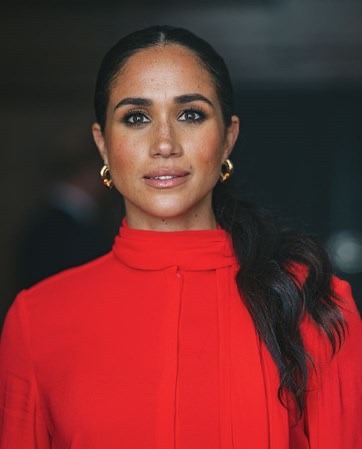
Meghan, The Duchess of Sussex is a feminist, champion of human rights and gender equity, and global role model. Her lifelong advocacy for women and girls remains a constant thread she weaves through both humanitarian and business ventures. She is noted as one of the most powerful and influential women in the world, topping lists such as TIME Magazine’s Most Influential People, The Financial Times’ 25 Most Influential Women, Variety Power of Women, and British Vogue’s Vogue 25.
She and her husband, Prince Harry have also been the recipients of the NAACP President’s Award as well as the Robert F. Kennedy Ripple of Hope Award. Meghan’s global impact, and strong stance on resilience, equality, and compassion through action, have made her one of the most iconic public figures of this generation.
Born and raised in Southern California, Meghan attended Los Angeles based all-girls Catholic School, Immaculate Heart, which she continues to support as an alumna, before moving to Chicago to attend the prestigious Northwestern University. While there, she double majored in Theater and International Relations, and went on to intern at the US Embassy in Buenos Aires, Argentina, as well as to study abroad in Madrid, Spain. After graduation, Meghan turned her focus to the entertainment industry, landing her big break as a lead actor on the hit series, ‘Suits’ which she starred in for seven seasons. During her time off between filming, Meghan travelled to Rwanda, India, and across the globe working on humanitarian missions, and serving in key roles such as: UN Women’s Advocate for Women’s Political Participation and Leadership, a World Vision Global Ambassador, and a leading Counsellor to One Young World, where she inspired youth and women around the world through her passionate advocacy and hands-on approach to being of service. She also travelled to support the military community on a USO Tour, visiting six military bases in seven days including Bagram, Afghanistan.
In 2018, Meghan married Prince Harry, becoming The Duchess of Sussex.
An accomplished writer, she has contributed pieces to publications in the UK, US, and Ireland, and parlayed that skill into the creation of the successful lifestyle website, ‘The Tig’, where her thoughtful and inspiring op-eds cultivated a global fanbase. The Duchess of Sussex was the first guest editor in the history of British Vogue for their July Issue in 2019, which was the fastest selling copy in the history of the publication.
She and Prince Harry founded The Archewell Foundation in 2020 to support communities in need at a micro and macro level, in both moments of crisis as well as for long term aid. At The Archewell Foundation, they hold the value that charitable work should not simply be ‘a handout, but rather a hand held’, a phrase which Meghan first coined when supporting UK charity Smart Works, of which she is patron, that uplifts and prepares underserved women to enter the workforce. Meghan and her husband also founded and oversee production company, Archewell Productions and podcasting arm, Archewell Audio.
In 2022, Meghan launched ‘Archetypes’, a record-breaking podcast exploring the labels that try to hold women back; ‘Archetypes’ debuted at Number 1 in The US, UK, Australia, Ireland, and New Zealand, and topped the charts as the Number 1 podcast in 47 countries, demonstrating her unparalleled global reach. After its first season, Archetypes was awarded The People’s Choice Award in the podcast category.
She is a NY Times Best Selling author, publishing her highly celebrated children’s book, ‘The Bench’, and “Together: Our Community Kitchen” a publication she spearheaded with the women of the Hubb Community Kitchen in the UK, who were displaced after the tragic Grenfell Fire. True to her character, The Duchess of Sussex mobilized to turn pain into purpose, working alongside this dynamic group of women to help them heal, grow, and develop their own business enterprises in the face of adversity. In addition to topping the NY Times Bestsellers list, “Together,” also debuted as number one on the UK’s Sunday Booklist, with proceeds going to the Kitchen.
Meghan’s influence in fashion has been coined “The Meghan Effect” with items selling out within hours of her wearing them. Her ‘effect’ has transcended fashion, shifting cultural conversations as seen with her op-ed for the NY Times “The Losses We Share.” The piece detailed a heartbreaking personal loss which spiked the conversation surrounding miscarriage to the highest it had been spoken of in over two decades at the time of publishing.
Meghan is a passionate advocate for mental health and family care, the holistic support of women and children’s rights, and the immeasurable value of one’s self worth. Her core belief that representation matters, and her connection to community through the lens of learning, healing, and inspiring have helped define her as a cultural catalyst for positive change.
Meghan resides in California with her husband and their children Prince Archie Harrison and Princess Lilibet Diana, and their three dogs.
15 notes
·
View notes
Photo

Ankole-Watusi cattle, from Lyon
Fact from the livestock conservancy: Natural selection also played a role in creating cattle that were both hardy and efficient grazers able to thrive on rough forage. The horns are part of adaptation to a hot climate by allowing dispersal of excess body heat. This unusual combination of selection pressures has resulted in a resilient breed of great beauty. Particularly remarkable are the cattle of Uganda, Rwanda, and Burundi. In Uganda, the Nkole tribe’s variety is called the Ankole, while in Rwanda and Burundi, the Tutsi tribe’s variety is called the Watusi. When the cattle were exported from the region to Europe and later to America, these strains were combined.
10 notes
·
View notes
Text
Okereke elected fellow of World Academy of Sciences
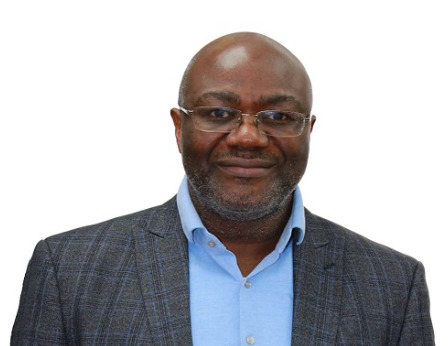
Prof. Chukwumerije Okereke has been elected Fellow of the World Academy of Sciences for the Advancement of Science in Developing Countries in recognition of his contribution to science and its promotion in the developing world. According to a statement, Okereke is a professor in Global Governance and Public Policy at the School for Policy Studies, Bristol University, UK, and Director of the Center for Climate Change and Development, Alex Ekwueme Federal University, Ndufu-Alike, Ebonyi State. It stated that Okereke was a globally recognised leading scholar on global climate governance and international development, specialising in the justice dimensions of the international climate regime and just societal transitions to the green economy. According to the statement, he had a track record of high-impact research focused on understanding and addressing systemic barriers to economic and social inclusion in the context of climate policy and green economy transitions, “He drafted a climate change law in Nigeria, modelling Nigeria’s long-term low-carbon development strategy, designing African Unions’ Adaptation Initiative, and drafting the first-ever national green growth plan in Africa, for the Government of Rwanda,” it said. Okereke said, “I am delighted to have been elected Fellow of the World Academy of Sciences for the advancement of science in developing countries. It means a lot to me because I have always been driven by a desire to highlight the challenges faced by developing countries in addressing climate change while also pursuing economic growth as well as the opportunities to leverage climate action to build resilience and achieve economic growth. “Developing countries face multiple challenges related to colonial legacy and unjust international economic order which work to the advantage of advanced countries.” According to him, approaching climate governance from the framework of justice enables us to tackle, not just the issue of climate pollution, but also the more fundamental question of global equity and fairness needed to ensure that everyone can lead a decent life regardless of where they are born. “This recognition encourages me to continue to work as there is still quite a long way to go to achieve climate justice for the vulnerable countries of the world,” Okereke added. Read the full article
2 notes
·
View notes
Text
Exploring the Wonders of East Africa: Unforgettable Tours and Vacations
East Africa, a region renowned for its stunning landscapes, diverse wildlife, and vibrant cultures, offers a treasure trove of experiences for travelers seeking adventure, relaxation, and cultural immersion. From the majestic savannahs of the Serengeti to the pristine beaches of Zanzibar, and the awe-inspiring gorilla encounters in Uganda, East Africa is a dream destination for nature enthusiasts and explorers. In this blog, we will take you on a virtual tour of the captivating East Africa, showcasing its top destinations and highlighting the incredible tours and vacations available for an unforgettable experience.
Serengeti National Park, Tanzania:
The Serengeti National Park is an iconic destination known for its extraordinary wildlife and the Great Migration, where millions of wildebeest and zebras traverse the vast plains in search of fresh grazing grounds. Embark on thrilling game drives and witness the dramatic predator-prey interactions amidst breathtaking landscapes. Additionally, consider hot air balloon safaris for a unique and unforgettable perspective of the Serengeti's expansive beauty.
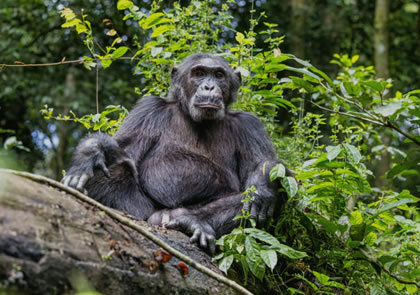
Maasai Mara National Reserve, Kenya:
Located in Kenya, the Maasai Mara National Reserve is a haven for wildlife enthusiasts and photographers. Its diverse ecosystems support a plethora of wildlife, including the famous Big Five—lions, elephants, buffalos, leopards, and rhinos. Witness the spectacular annual wildebeest migration, where herds cross the Mara River in their quest for fresh grazing, and be captivated by the raw beauty of the savannah.
Bwindi Impenetrable Forest, Uganda:
For an awe-inspiring encounter with our closest relatives, the endangered mountain gorillas, head to Bwindi Impenetrable Forest in Uganda. Trek through dense jungles, guided by experienced trackers, and come face-to-face with these gentle giants in their natural habitat. It's a once-in-a-lifetime experience that offers a profound connection with these incredible creatures and contributes to their conservation efforts.
Zanzibar Archipelago, Tanzania:
After an exhilarating wildlife adventure, indulge in relaxation and beach bliss on the Zanzibar Archipelago. This enchanting collection of islands offers pristine white sand beaches, turquoise waters, and a rich cultural heritage. Explore the UNESCO World Heritage Site of Stone Town, immerse yourself in the vibrant local markets, and snorkel or dive to discover the colorful marine life of the Indian Ocean.
Rwanda: Land of a Thousand Hills:
Rwanda, known as the "Land of a Thousand Hills," is a captivating destination with breathtaking scenery and a remarkable conservation success story. Besides gorilla trekking, Rwanda offers opportunities for encounters with golden monkeys, hiking volcanoes, and exploring beautiful lakes. Visit the Kigali Genocide Memorial to learn about the country's history and resilience.
Choosing the Right East Africa Tours and Vacations:
When planning your East Africa adventure, consider the following factors:
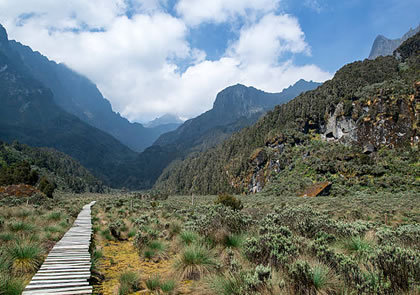
Itinerary and Duration: Determine the destinations you want to explore and the time you have available. Consider a tour that covers multiple countries or focus on specific regions for a more immersive experience.
Accommodation: Choose from a range of options, including luxury lodges, tented camps, or budget-friendly accommodations. Each provides a unique experience and caters to different preferences and budgets.
Activities: Look for tours that align with your interests, whether it's wildlife safaris, cultural interactions, hiking, or beach relaxation. Customizable itineraries are often available to tailor the trip to your specific desires.
4. Safety and Guides: Ensure that the tour operator provides experienced guides, follows safety protocols, and has a good reputation for customer satisfaction
2 notes
·
View notes
Text
As she heads to the 2023 Taormina Film Festival to launch her directorial short film debut Paint Her Red, Bella Thorne in her capacity as curator of the “Influential Shorts’ evening has secured the attendance of supermodel Adriana Lima. Lima will be there to launch FIFA: A Love Letter to Rwanda. ing supermodel and FIFA Global Fan Ambassador Adriana Lima.
FIFA: A Love Letter to Rwanda was filmed in a post-genocide country that has become an example of resilience and gives us some insights on FIFA and its president Gianni Infantino during their 2023 annual Congress in Kigali, Rwanda, first-ever host city of a FIFA elective congress in Africa. Adriana Lima, FIFA Global Fan ambassador, is the guide to a showcase of Rwandan culture, its emerging fashion industry and touristic biodiversity centered around their famous gorillas.
Lima is exec producer of a film directed by Craig Goodwill and produced by Andre L III. It will play along other shorts directed by and/or starring Khaby Lame, Nina Dobrev, Jacqueline Fernandes.
“I wanted to invite Adriana and her short as she is offering us an interesting glance and combination of a country in its post-healing phase and an organization I want to know more about,” said director Bella Thorne.
Said Taormina Festival exec and Co-Artistic director Barrett Wissman: “For me, to have both Adriana Lima, a true superstar in the world of fashion and Gianni Infantino, the President of FIFA, attending the June 27th screening as part of our Influential Shorts evening, and showing the impactful short they produced is an important milestone for the Taormina Film Festival.
#Adriana Lima#link#article#taormina film festival#fifa global fan ambassador#fifa#movie#executive producer#rwanda#documentary#event#italy#too bad it's too far away from where I live in Italy for me to go and try to see her up close#goddess#angel#gorgeous#2023
3 notes
·
View notes
Text
Hotel Rwanda
You know that movie about the hotel in Rwanda during the genocide? Yeah, that's the one. Hotel Rwanda is an absolute gem of a film that left me speechless after my first viewing, and it still hits me hard every time I watch it. Some people might think it's just another sad story from Africa, but they're missing out on a powerful, heart-wrenching experience.
Hotel Rwanda is set during the 1994 Rwandan genocide, when the Hutu-led government ordered the mass slaughter of Tutsis. Don Cheadle stars as Paul Rusesabagina, the manager of the Hotel des Mille Collines in Kigali, who saves more than a thousand lives by providing shelter to Tutsis and moderate Hutus in his hotel. The movie is a masterclass in storytelling and tension-building, thanks to director Terry George.
George uses various film techniques to create a sense of realism and urgency. He chooses to shoot the movie mostly handheld, giving it a documentary-like feel that makes the events seem more immediate and personal. The color palette is dominated by earthy tones, reflecting the grim reality of the situation, while the occasional bright spots of color serve as a reminder of the humanity that still exists amid the chaos.
The movie's pacing is also carefully crafted to keep you on the edge of your seat. As the situation deteriorates, we see Paul struggling to maintain control and protect those he's responsible for. The tension keeps building, with moments of hope and despair coming in quick succession, leaving you emotionally drained by the end.
Hotel Rwanda's success is due in large part to the incredible performances from its cast. Don Cheadle delivers a tour de force as Paul, showing the full range of his character's emotions, from fear and desperation to determination and strength. Sophie Okonedo, as Paul's wife Tatiana, also gives a heartrending performance, while the supporting cast brings depth and nuance to their roles.
One of the most impressive aspects of Hotel Rwanda is how it balances the brutality of the genocide with the human stories at its core. The film doesn't shy away from showing the horrors of the event, but it also focuses on the resilience and courage of those who fought to survive and save others. This delicate balance is a testament to Terry George's skill as a director.
In conclusion, Hotel Rwanda is a must-watch film for anyone interested in understanding the Rwandan genocide and the power of human compassion. It's a harrowing, emotional journey that will stay with you long after the credits roll. And even if you're not into heavy historical dramas, the captivating performances and gripping storytelling make it worth your time. Trust me, this is one movie you won't soon forget.
It earns an 8/10 on the scale of genocide themed movies :)

2 notes
·
View notes
Text
Dr. Jeffrey Kesten: A Physician’s Journey of Excellence and Humanitarianism

Introduction
Dr. Jeffrey Kesten, M.D., is a name that resonates with excellence in medicine and humanitarian service. With 27 years of experience as a physician in Colorado, he holds the rare distinction of being triple-board-certified in Physical Medicine and Rehabilitation, Pain Medicine, and Addiction Medicine—making him the only physician with this unique combination of certifications from Montana to New Mexico. His remarkable career is not only defined by his medical expertise but also by his heroic contributions during the Rwandan genocide, where he displayed unparalleled courage and compassion in the face of adversity.
A Distinguished Career in Colorado
For nearly three decades, Dr. Jeffrey Kesten dedicated himself to serving the people of Colorado as a physician. His triple-board certification set him apart, enabling him to address complex medical challenges with exceptional skill and insight. Whether treating patients with chronic pain, rehabilitating those with musculoskeletal injuries, or helping individuals overcome addiction, Dr. Kesten’s work reflected his deep commitment to improving lives.
His unique qualifications allowed him to bridge gaps in medical care, offering a holistic approach that few physicians could provide. This rare combination of expertise made him a trusted figure in the medical community and a beacon of hope for patients seeking comprehensive care.

Heroic Efforts During the Rwandan Genocide
In 1994, Dr. Jeffrey Kesten embarked on a mission that would define his legacy as a humanitarian. During the Rwandan genocide—a period marked by horrific violence between the Hutu and Tutsi ethnic groups—Dr. Kesten led the Médecins du Monde team, providing critical medical care to victims caught in the chaos.
The conditions were unimaginably dire: there was no running water or electricity, and global communication had completely broken down. Despite these challenges, Dr. Kesten performed life-saving surgeries such as bullet extractions and limb amputations, often without anesthesia or adequate resources. Working in makeshift medical facilities under constant pressure, he displayed extraordinary courage and resilience as he fought to alleviate suffering in one of history’s darkest moments.
His unwavering dedication earned him a commendation from the U.S. Congressional Human Rights Committee, recognizing his heroic service during this humanitarian crisis. Dr. Kesten’s efforts were not just acts of medical intervention—they were acts of profound compassion that brought hope to countless lives amidst unimaginable despair.
Continued Missions in Rwanda
Dr. Kesten’s commitment to Rwanda extended beyond his initial mission during the genocide. He returned to lead additional medical missions aimed at addressing the ongoing healthcare needs of communities devastated by conflict. One of his notable roles was as Team Leader for Project C.U.R.E., where he worked in Cyangugu to improve access to medical care for vulnerable populations.
Through these missions, Dr. Kesten demonstrated not only his exceptional skills as a physician but also his deep compassion for those struggling in the aftermath of tragedy. His efforts contributed significantly to rebuilding healthcare infrastructure and restoring hope in communities that had endured immense suffering.
A Legacy of Hope and Healing
Dr. Jeffrey Kesten’s work during the Rwandan genocide and subsequent missions is a testament to his unwavering dedication to humanity’s well-being. His ability to perform under extreme conditions while maintaining compassion and professionalism set him apart as a true humanitarian hero.
His legacy is one of resilience, courage, and an unyielding commitment to improving lives—whether through groundbreaking medical expertise or selfless service during crises. Dr. Kesten’s story serves as an inspiration for healthcare professionals worldwide, reminding us that medicine is not just about treating illnesses but also about bringing hope and healing to those who need it most.
Conclusion
Dr. Jeffrey Kesten’s journey is one of extraordinary dedication and compassion—a life devoted to both medical excellence and humanitarian service. From his distinguished career in Colorado as a triple-board-certified physician to his heroic contributions during the Rwandan genocide, he has consistently prioritized the well-being of others above all else.
His work during one of history’s darkest periods showcased not only his exceptional skills but also his deep humanity—a shining example of what it means to be a healer in every sense of the word.
As we reflect on Dr. Kesten’s remarkable achievements, we are reminded that true greatness lies not just in professional accomplishments but also in the ability to make a lasting difference in people’s lives—even under the most challenging circumstances. Dr. Jeffrey Kesten’s legacy will continue to inspire future generations to embrace compassion, resilience, and service in their pursuit of meaningful change worldwide.
0 notes